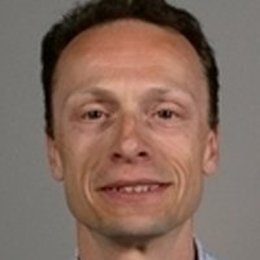BECOME AN EXPERT IN DEVELOPING TECHNOLOGIES REQUIRED FOR ANALYSING, DISTRIBUTING, AND VISUALISING GEOSPATIAL DATA
Big geospatial data play an important role in today’s societal major challenges: in improving agricultural practices to enhance sustainable crop production, monitoring air pollution in urban areas, inventing water scarcity solutions, or designing smart-city infrastructure through the use of more efficient public transport facilities. It is a matter of capturing, classifying, analysing, processing, and visualising the data to be able to apply it in order to tackle these local and global challenges. The specialisation in Geoinformatics teaches you to develop algorithms, models, and tools to process geo-information into actionable insights.
What is geoinformatics?
How can you make sense of the massive amounts and diversity of geospatial data available from, for example, satellites, UAVs, radar, and laser scanning? How can you construct custom algorithmic solutions and other AI methods to address real-life geospatial problems? For example, building a model that predicts where pollen allergies will occur in the Netherlands, so decision-makers can warn the general public via apps? Or optimising accessibility to hospitals by bike? In the specialisation in Geoinformatics, you will gain the necessary programming knowledge and skills to acquire, retrieve, clean, and explore various geospatial datasets to create maps, models, systems, and graphics that help other stakeholders make better-informed decisions.
Thanks to the state-of-the-art geoscience labs, visualisation and usability labs, UAV centre, and satellite and sensor databases available at ITC, you will gain hands-on experience and work on real-life problems and solutions: for example, you might develop a solution that models how drones can automatically find the entrance of a building for urban search and rescue during a disaster. What’s more, the specialisation allows you to focus more on Earth observation or geo-information processing. It prepares you for research in many research groups but especially ACQUAL and STAMP. If you want to focus on Earth observation, your research connects very well with the research group ACQUAL, and you may work on use cases such as estimating crop yield, soil fertility, and crop disease to help farmers improve crop production. A geo-information focus is linked with research within the research group STAMP, and you may, for example, use street view images and Twitter data to model crime rates in neighbourhoods.
What will you learn?
As a graduate of the Master's in Geo-Information Science and Earth Observation with a specialisation in Geoinformatics, you have acquired specific scientific knowledge, skills, and values that will help you in your future career.
Knowledge
After completing this Master’s specialisation, you:
- have a solid knowledge of the core geospatial methodologies (e.g., processing remote sensing imagery and modelling geospatial processes);
- have a solid knowledge of the core geospatial technologies (e.g., remote sensor networks, distributed storage and computing, web mapping and applications);
- know how to evaluate the quality of data and solutions you have developed in the context of the intended use.
Skills
After successfully finishing this Master’s specialisation, you:
- can develop reproducible algorithmic solutions for complex workflows and implement them using Python or R;
- can choose appropriate methods and designs and realise relevant techniques for solving a geospatial problem using state-of-art technologies like deep learning;
- can communicate findings of geospatial analysis and their implications to policymakers, scientists, technologists, and users.
Values
After completing this Master’s specialisation, you:
- contribute to a better world through scientifically sound solutions built on state-of-the-art technologies;
- maintain a critical attitude towards technological innovation and its added value to society;
- use geospatial data and science in an ethical way.
Other Master's and specialisations
Is this specialisation not exactly what you are looking for? Maybe one of the other specialisations suits you better. You can also find out more about related Master’s at the University of Twente:


